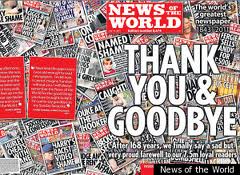Index relies entirely on the support of donors and readers to do its work.
Help us keep amplifying censored voices today.
Many of the modern issues that Index on Censorship tackles are what I call the shades of grey. From Wikileaks to privacy to hate speech and phone hacking, free expression comes hurtling against other rights or perceived rights. Rarely do absolutes prevail in this more complex and technological world.
It was therefore salutary for me to be reminded of the black and white which still confronts us: journalists and activists murdered, imprisoned or threatened for trying to hold the powerful to account and expose wrongdoing.
The British theatre group IceandFire transport audiences into the worlds of five crusading reporters and photo-journalists as they risk their lives for the sake of their stories. Several of these real-life cases have been followed and documented by Index. One of them, Lal Wickrematunge, Editor of the Sri Lankan newspaper Sunday Leader was reportedly threatened by his country’s president by telephone only a week ago. His brother, Lasantha, was murdered by the authorities in 2009.
The travails of Lydia Cacho, one of the world’s most fearless journalists, were movingly portrayed. Only six weeks ago Cacho says she received anonymous death threats for her continued campaign to expose corruption and criminality, particularly the role of senior politicians in sex offences and trafficking. From the work of a brave Israeli journalist working inside the West Bank, to an American defying the US military’s largely successful attempts to sanitise the Iraq war, the play brings home not just the bravery, but also the doubts and dilemmas faced by a small but determined group of reporters. The episode most familiar to me personally was the newsroom at Novaya Gazeta, for long a beacon of fearless journalism in a Russia where the attacks on free speech have remained constant over the past 20 years, long after the collapse of Communism.
Within 20 metres of leaving the theatre, in Hackney in east London, I came across three riot police vans. It was, at first glance, a shock. The officers were lounging around, eating Macdonalds. The city was still reeling from riots and looting. Yet amid all the gloom and self-doubt that has beset Britons, and only a month after the height of the phone-hacking scandal, it was worth remembering that, there are still many countries grappling with troubles on an altogether different scale.
John Kampfner is chief executive of Index on Censorship
 Axing the PCC means re-examining the balance of privacy v public interest – but will investigative journalism pay the price? Asks John Kampfner
Axing the PCC means re-examining the balance of privacy v public interest – but will investigative journalism pay the price? Asks John Kampfner
(more…)
Everyone is competing for the colour of their adjectives. Everyone agrees that the actions of the News of the World have been reprehensible, despicable — you can take your pick.
As the revelations tumble forth, exposing layer upon layer of depravity and potential corruption, it’s important to remember that the sins of the many (including seemingly those in high places) should not be used as an excuse to tighten control on an entire media. That was my message in a comment piece this week in the Financial Times. This is, as I wrote, a tough time to be promoting freedom of expression.
The instinct among many of the media’s critics is to tar everyone with the same brush. When I recently testified before a BBC radio commission on privacy I urged the commissioners not to fall into the trap of using a fisherman’s bottom trawling technique — if you throw a huge net into the sea you will find what you are looking for; you may also damage the environment for the good folk, and yes, those good folk do exist.
Many of the politicians who courted Rupert Murdoch’s News International are jumping onto the condemnation bandwagon. Their views carry no credibility, although some MPs have acted fearlessly and tenaciously in backing calls for a judicial inquiry into the hacking scandal.
At the launch of the Hacked Off campaign for an inquiry into the scandal — co-ordinated by Index on Censorship contributor Brian Cathcart and the Media Standards Trust— last night, MPs Tom Watson and Paul Farrelly were singled out for praise. And so they should have been.
In the Commons, David Cameron said that several inquiries might follow the police’s current investigation. This was immediately denounced as a ruse to delay finding out the truth. And, given the Prime Minister’s close links with the Murdoch clan (no less cosy than those enjoyed by Tony Blair and Gordon Brown), such an accusation may carry weight.
But there is a further danger: when Cameron, Miliband and others talk of inquiries into “media ethics”, alarm bells should sound — not because of the principle, but the motivation. Politicians, indeed anyone who holds power, by the nature of their positions seek to prevent inconvenient truths from coming to light. The time-honoured task of journalists is to challenge that.
Index on Censorship was asked by the organisers of “hacked off” to endorse their call for an investigation into hacking. We are watching their work with interest. We have thus far withheld formal support not because we disagree, but because we seek assurance that any probe can root out evil doing but reinforce good journalism.
The “princes of darkness” at the News of the World and beyond have provided politicians with a golden opportunity to strike back at the media more generally.
 No one can now be in any doubt about the depths to which some in the British media will sink to get a story. John Kampfner reports
No one can now be in any doubt about the depths to which some in the British media will sink to get a story. John Kampfner reports
This article first appeared in the Financial Times
(more…)